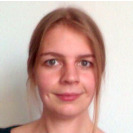WebVision 2020 VIRTUAL
Click on the links below to attend respective sessions:
* All times are Pacific Daylight Time (Seattle time) *
Please find the Zoom link to join the live Q&A sessions at the CVPR official workshop landing page (at the top of the page).
People
General Chairs
 Jesse Berent
Jesse Berent
 Abhinav Gupta
Abhinav Gupta
 Rahul Sukthankar
Rahul Sukthankar
 Luc Van Gool
Luc Van Gool
Program Chairs
 Wen Li
Wen Li
 Hilde Kuehne
Hilde Kuehne
 Suman Saha
Suman Saha
 Qin Wang
Qin Wang
 Limin Wang
Limin Wang
 Wei Li
Wei Li









